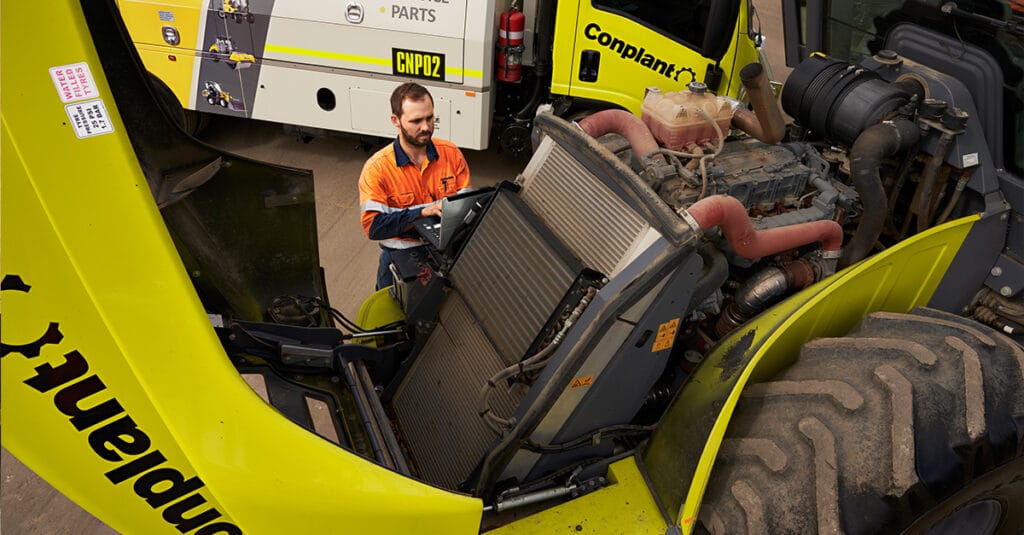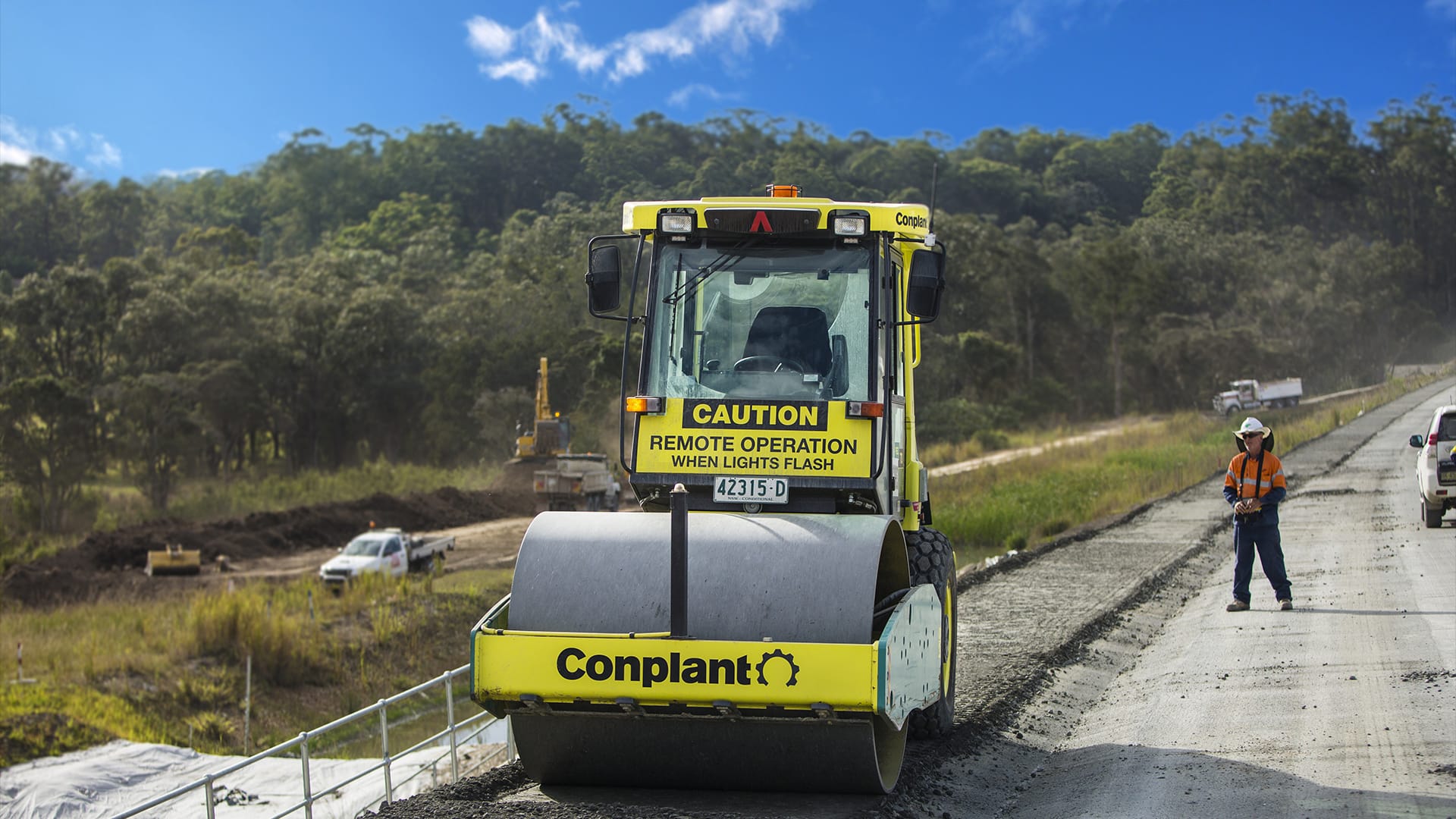What’s the best way to maintain compaction equipment?
Whether hiring or purchasing, construction equipment is no small investment. Compaction rollers, dumpers and other heavy machinery are valuable assets which construction projects rely on to deliver results on schedule. Any malfunction can have significant flow-on effects for timelines and budgets, not to mention worker safety.
Given their range of heavy duty applications, construction equipment is inevitably prone to wear and tear over time. Without regular compaction equipment maintenance and care, you risk extended downtime. Proper maintenance ensures you keep your equipment in good condition, maximise its lifespan, and save money on repairs.
Here are 10 simple tips for maintaining compaction and construction equipment.
1. Stick to the maintenance schedule provided
It might sound basic, but the maintenance schedule provided by the manufacturer is the best guide to follow. This will tell you how often maintenance, inspections, and replacements should be done. Adhere to these schedules for all your equipment to optimise performance and durability.
2. Check fluid levels & quality frequently
Construction and compaction equipment needs oil, coolant, and hydraulic fluid in order to run smoothly. Routine checks – not only on fluid levels, but also the quality of the fluid – are critical to prevent equipment failure. Fluid levels should be checked daily or as directed by the manufacturer, and topped off or replaced as necessary.
Need to get your compaction equipment back in tip-top condition? Book in for a service.
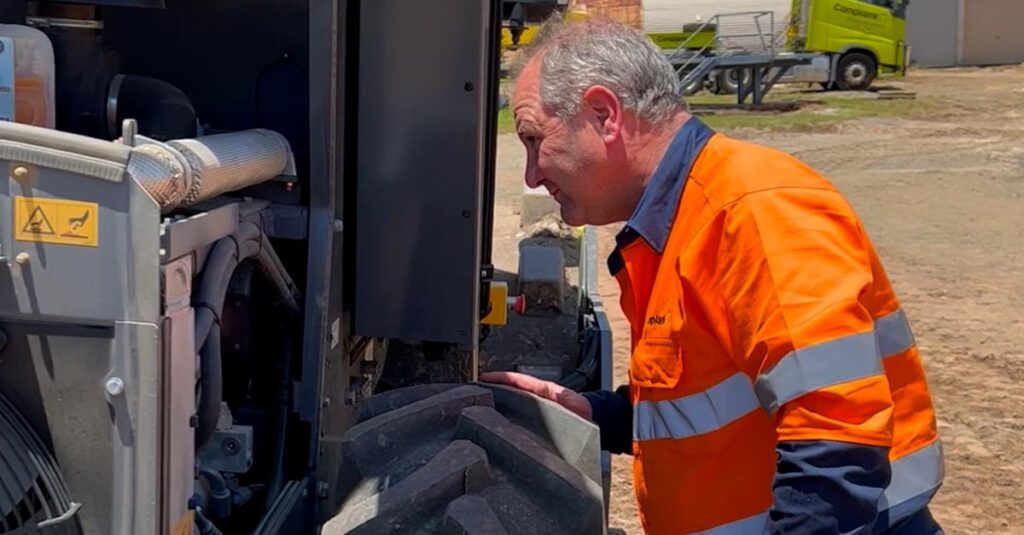
3. Keep moving parts greased
Grease is key for heavy duty machinery with lots of metal elements constantly grinding and clanking together. Lubricating moving parts such as bearings, joints, and pins is important to reduce the amount of wear and friction. As always, check the manufacturer’s recommendations for how often you should grease something, as well as the type and amount of grease to be used.
4. Maintain a regular cleaning schedule
Your equipment needs attention even when it’s not in use. That means regular cleaning. Dirt and other debris can accelerate wear and tear, potentially causing equipment to break down prematurely. It’s important to pay extra attention to areas that may be difficult to access – around joints, for example – with water and a gentle detergent to reduce corrosion and prolong the lifespan of the equipment.
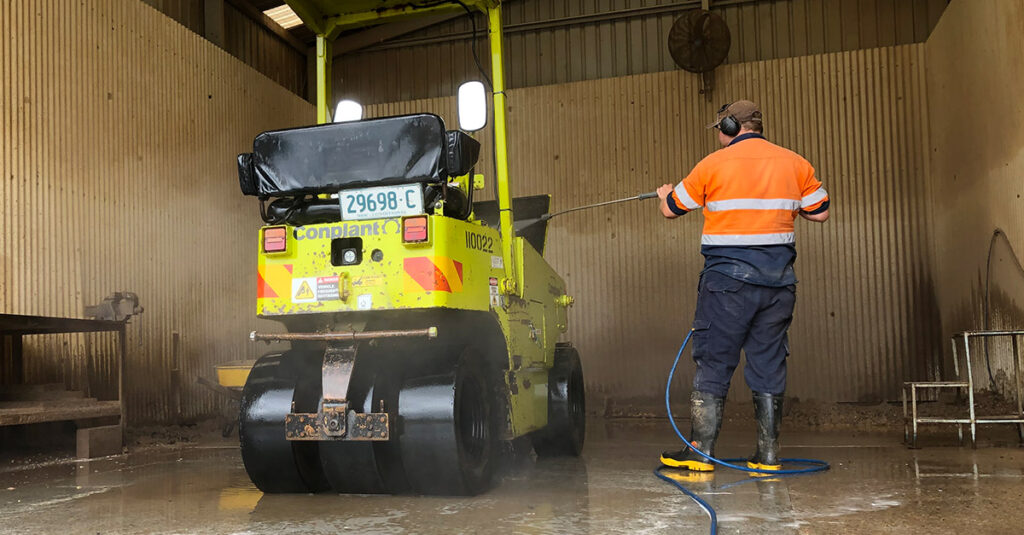
5. Make sure equipment is always lubricated
Lubrication is necessary to minimise the amount of wear and tear on machinery by keeping moving parts running smoothly. For the best results, always keep equipment well-lubricated using lubricants that are recommended by the manufacturer.
6. Conduct daily inspections
Damage isn’t always evident as it occurs. Often, it can be a case of cumulative wear and tear over time. It’s important to conduct daily inspections to assess the condition of equipment and any problems can be identified as soon as possible. Be thorough – keep an eye out for any abnormalities, such as leaks, cracks, worn parts, loose bolts, and so on. Address any problems immediately to prevent breakdowns.
Need to get your compaction equipment back in tip-top condition? Book in for a service.
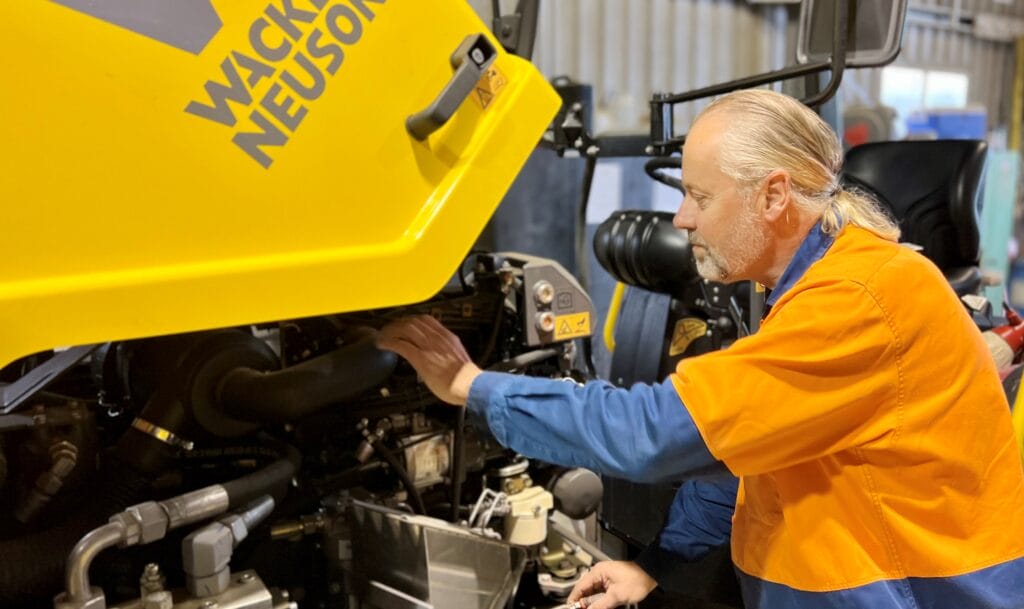
7. Ensure equipment is stored correctly
Just because construction equipment is built for tough jobs, that doesn’t mean it should be exposed to the elements more than it has to be. Store equipment in a dry, covered location, so that it’s shielded from rain, snow, and debris. Items should also be adequately secured to prevent vandalism or theft.
8. Give operators the requisite training
All the gear, no idea isn’t an option when it comes to heavy machinery. Aside from the legal requirement, site workers need the correct training to operate equipment safely and efficiently. Make sure everyone operating any equipment onsite has received sufficient training and that they’re also familiar with the manufacturer’s recommendations in terms of maintenance.
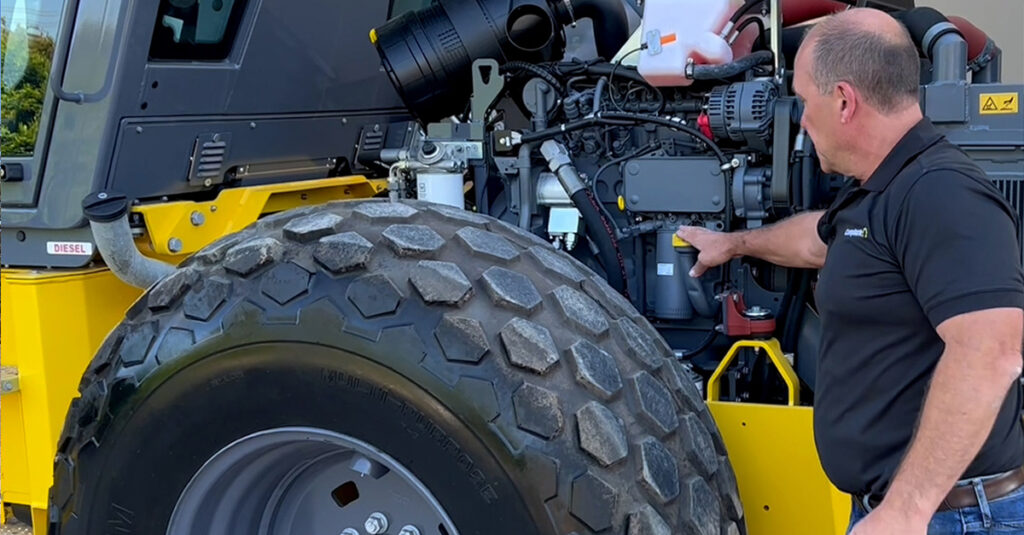
9. Only operate the equipment as intended
Again, a bit of common sense stuff here. Obviously, machinery is purpose-built to perform certain functions. Equipment may only be able to withstand a certain load or impact for a certain duration. It’s important not to overwork the equipment, as this can cause it to overheat or break down. Operators should always take care to follow the manufacturer’s instructions faithfully.
10. Address any issues ASAP
While minor problems may be tempting to ignore in order to avoid repair costs or delays in the short term, they’ll soon become bigger headaches resulting in more costly repairs. If you find any problems with equipment, flag and fix them immediately to avoid breakdowns.
Regular construction equipment maintenance is critical for your machinery to last as long as possible and continue working to its full capacity. If you’ve got any questions about compaction or construction, give us a call on 1300 166 166. Or you can find your nearest branch here.
